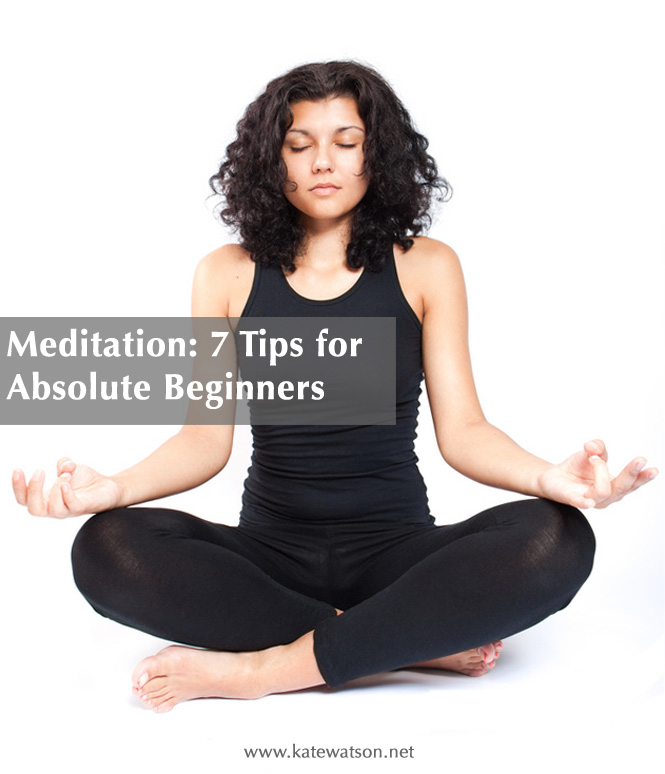
Meditation is a commonly suggested practice to develop mindfulness, but the way it is taught can create an unnecessary challenge for beginners.
Suggestions like, “silence your mind for 20-30 minutes per day,” throw beginners into the deep end. While this advice could work for someone who already meditates regularly, for someone who doesn’t, 20-30 minutes of meditation likely sounds intimidating and “[silencing] your mind” virtually impossible.
Therefore, today I’m going to share easy tips for absolute beginners to get started with meditation. But, first, I want to define meditation and talk a bit about its benefits—in case you’re so new to the concept that you’re not even sure what meditation is and why you should bother.
According to the Free Medical Dictionary: Meditation is a practice of concentrated focus upon a sound, object, visualization, the breath, movement, or attention itself in order to increase awareness of the present moment, reduce stress, promote relaxation, and enhance personal and spiritual growth.
Meditation has been practiced across various cultures for thousands of years. Since researchers began studying its effects in the 1960s, meditation has been found to increase quality of life and improve health outcomes in such areas as blood pressure, anxiety and depression, and pain management.
Meditation for Beginners: 7 Tips
- Just breathe. Wherever you are, close your eyes and breathe slowly. Don’t try to control your breath but do focus on it. If it helps you to remain focused, label your actions such as “in” as you draw air into your lungs and “out” as you exhale.
- Relax. Let go of any stress or expectations you have about meditation. If any other thoughts come to mind as you’re breathing, allow them to pass by and simply return to your breath without criticizing yourself. Hey, you’re a beginner!
- Count. If “in” and “out” don’t do it for you, try counting instead. Count to seven during each of the following actions: Breathing in, pausing, breathing out, pausing again.
- Let go of time. The act of meditating is more important than the length of time you do it right now. Let go of the need to meditate for 15 minutes or 20 minutes or even 5 minutes. Allow yourself to start slowly.
- Listen to a peaceful song. If focusing on your breath proves to be a struggle, try putting on a soothing instrumental tune and listening. Focus on each note as you hear it. When the song finishes, you’re finished with your meditation for the day. Hooray!
- Experiment. There are many ways to meditate: standing, sitting, walking, jogging, lying down, by focusing on an object, or with closed eyes as I suggested above. Try different methods with an open mind and a beginner’s attitude. There is no right way; there is only the way that works best for you.
- Try a guided meditation. If you feel confused about the process, seek help. Try a guided meditation from UCLA Mindful Awareness Research Center, The Chopra Center, Tara Brach, or Audio Dharma, or read additional meditation suggestions from Gaiam.
Which of these suggestions did you find most helpful? If you’re more experienced with meditation, do you have any other suggestions for beginners?
Cheers,

Photo Credit: RelaxingMusic via Compfight cc
















